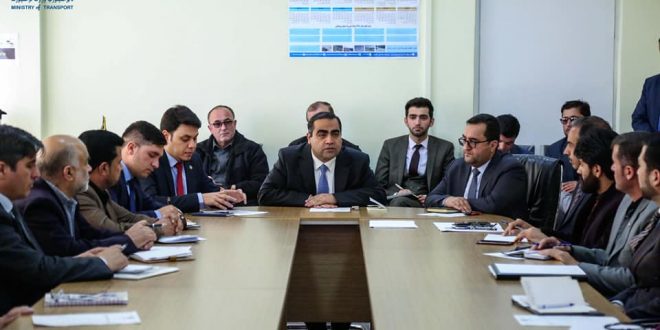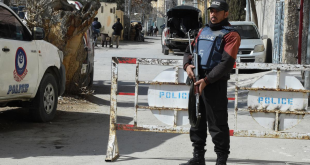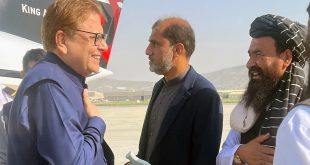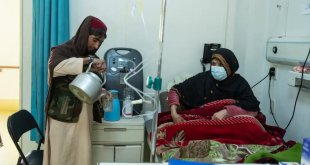By Ehsanullah Zirak
Corruption is a catalyst for weakening a state, and eventually this catalyst threatening the survival of any nation-state where this social – economic and political phenomena does exist. Transparency, accountability and amenability are the core principles of every democratic government. When there is transparency at any society, it experience high level prosperity and development in every regard.
To combat corruption effectively there is a need for legal, institutional and social base creation and reforms both in the government sector and society due to the multi dimension of this socio-economic and political phenomena.
Afghanistan is a way forward in this regard and significant improvements have been made in recent years as we can point out to legislative and institutional reforms. One aspect of these reforms was shifting the ARVA (Asset Registration & Verification Agency) in 2017 under the legislative decree of H.E president to AOP (Administrative Office of the President) from the High Office of Oversight and Anti-Corruption. After this, significant reforms has been made in ARVA based on effectiveness and efficiency, through which this agency had increasingly more achievements in 2019 compared to the previous years; as the United Nations Assistance Mission in Afghanistan (UNAMA) recently has published a report under the name of Afghanistan’s Fight Against Corruption (crucial for peace & prosperity) which these achievements have been reflected in as the following:
- Legal Framework
Based on UNAMA’s report and in accordance with UNCAC, States parties are required to establish a legal framework for asset declarations in accordance with the principles of their domestic law.[i] Afghanistan’s assets declaration and verification regime is governed by the Constitution, [ii] the 2017 Law on Declaration and Registration of Assets of High-Ranking Officials and Employees (Assets Declaration Law),[iii] the 2018 Penal Code[iv] and the 2018 Anti-Corruption Law.[v]
In addition, the required sub-legislation is currently being developed. The Constitution requires that the wealth of the President, Vice Presidents, Ministers, members of the Supreme Court and the Attorney General should be registered, reviewed and published prior to and after their terms of office.[vi] The Asset Registration and Verification Agency (Agency), which was established under the Administrative Office of the President by the Assets Declarations Law and will transition to the Independent Anti-Corruption Commission twelve months after its establishment,[vii]is responsible for the registration and verification of assets. The 2018 Penal Code criminalizes and punishes offences related to declaration of assets, including illicit enrichment[viii] and false declarations.[ix]In 2019, the Agency continued to administer assets registration and verification,[x] building on successes in 2018, [xi]and further consolidating the legal and administrative framework for asset registration.
Besides, the Agency has made more reforms in the existing legal framework and establishing new required legal instruments such as Asset Registration & Verification Regulation and work mechanisms and the agency procedure which govern and guiding the asset declaration, publication and verification process.[xii]
- Government High Ranking Officials and Employees Asset Declaration
As mentioned before, the agency through reforms and new initiatives has made a significant achievements, which is the result of great leadership and efficient management in this agency.
By 2019, the Agency registered a total of 21,362 asset declarations. In the first four months of 2020, the Agency registered 6,548 asset declarations. As in previous years, this success was attributed also to the President’s direct support in ensuring compliance with asset declaration obligations. Despite this success, asset registration by constitutionally mandated officials declined in 2019, with only 31 out of 38 officials in this category registering their assets. Both the former Chief Executive and the former First Vice President did not register their assets in 2019[xiii] and only 23 sitting and three former ministers registered their assets. The ministers who did not declare their assets were sanctioned by suspending salaries and banning overseas trips.
In 2019, 2,085 out of 2,185 judges and 3,351 out of 3,383 prosecutors registered their assets.[xiv] Among agencies with anti-corruption mandates, the National Procurement Authority (NPA), the Supreme Audit Office (SAO) and the Financial Transactions and Reports Analysis Centre of Afghanistan (FinTRACA) reported full compliance of their staff with asset declaration obligations in 2019.
To enforce compliance with asset declaration obligations, the Agency may suspend the salaries and request travel bans for non-compliant officials. In 2019, the Agency sanctioned 651 officials by requesting the withholding of their salaries, and as a result 534 additional officials complied. Success in registering asset declarations was, however, not replicated in the verification process. Only 130 out of the 21,362 declarations filed in 2019 were verified. Verification of 3,666 declarations was underway in late April 2020. The Agency attributed the low level of verification to the absence of comprehensive administrative procedures, lack of information registries in related government agencies and insufficient staff numbers. To address some of these problems, the Agency developed regulations and procedures for guiding the asset declaration, publication and verification process.[xv]
- Capacity Building and Institutionalization
After changing the leadership of the agency in 2019 with the co-operation of new team very close attention is paid to capacity building and this agency is a way forward to Institutionalization, as described below:
A flow charts and certain mechanism are finalized for its work from declaration to publication and piloted an online declaration system in January 2020. While its staffing levels continued to be too low in 2019,[xvi] the Agency conducted capacity building activities for its own staff and other public servants and 7 members of the staff participated in a shared exchange program with the Corruption Eradication Commission of Indonesia (KPK) in February 2020. The Agency also developed a system of verifying the asset declarations of high-ranking officials under Article 154 of the Constitution, whose declarations the Agency must register, review, and publish upon assumption of office and upon vacating it.
3. Verification and Criminal Cases
In 2019, out of the 19000 declared assets, 3600 were under verification. However, many declarations published online are incomplete. From the 130 verified declarations, the Agency found at least six possible cases of criminal violations which it referred to the Attorney General’s Office (AGO). After reviewing the files, the AGO requested further information from the Agency, which the Agency continues to gather.
4. Successful Completion of IMF Benchmark
IMF’s benchmark relevant to ARVA Includes: 1. Adoption of Asset Registration & Verification Law. 2. Asset declaration of government high ranking officials, independent authorities & directorates’ directors. 3. Publishing a checklist of 11000 declared assets of government officials and financial & procurement sections employees. 4. Based on article 154 of the Afghanistan’s Constitution, publishing of high ranking officials’ asset. 5. Developing of procedure for declared assets publishing, and finally 6. Publishing the data and information regarding asset registration & verification through AOP website. All these parts of the IMF’s benchmark were successfully completed in 2019 by the ARVA.
As a result we can say that considering the ruin consequences of corruption over all aspects of the people’s daily life, and increasing the gap between citizens and its government; a comprehensive and effective combat is needed. This combat possible through digitalizing the public services providing processes and bringing reforms in government sectors also implementing the effective methods, one of them is government high ranking officials and employees assets declaration.

In this regard the director of ARVA Mr. Abdul Wodood Bashiryar point out: “We have been working on a comprehensive Asset Declaration and Verification Regime here in ARVA which will enable the agency to verify all disclosers declared by the fillers, and this agency will be a model in the region.” He further added, that:” For achieving the above mentioned goals and strengthening the asset declaration and verification tools to combat against corruption and bring more transparency, digitalization is a significant step. Thus, we will be able to have a fully digitalized system by the end of 1400 (Beginning of 2022).
Note: this article is based on the UNAMA’s report which has been published under of Afghanistan’s Fight Against Corruption (crucial for peace & prosperity) , Full report available at: https://unama.unmissions.org/corruption
 Afghanistan Times
Afghanistan Times




